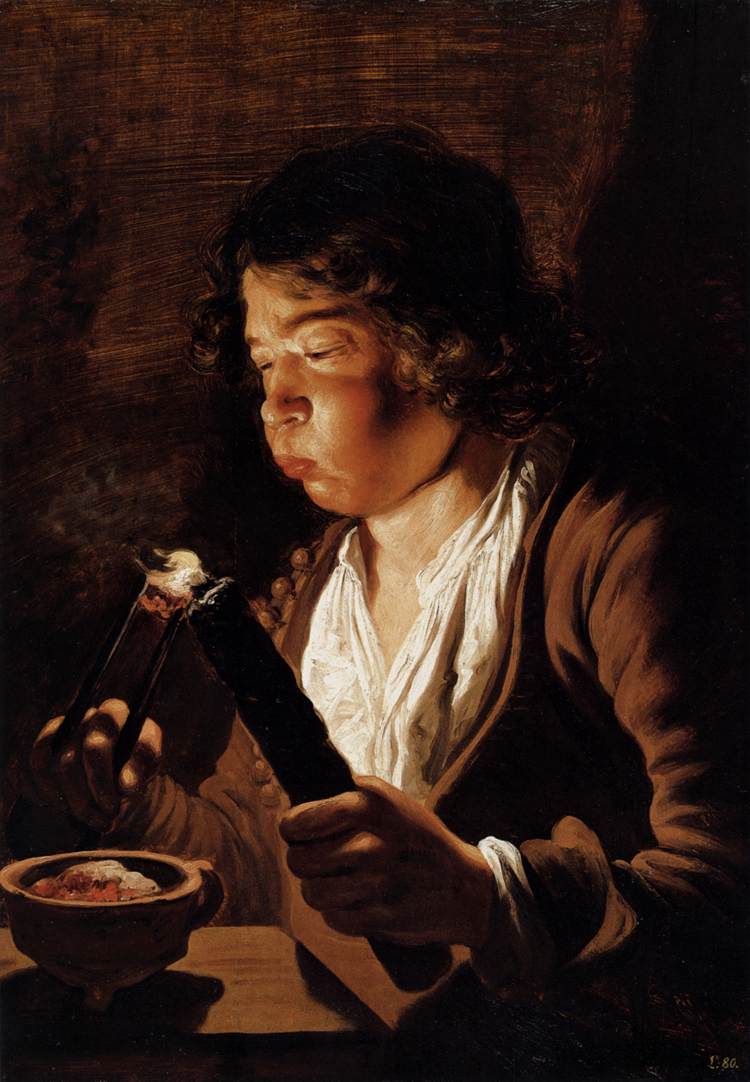Description
The painting "The Four Elements and Ages of Man: Fire and Childhood" by Jan Lievens is an impressive work that combines the beauty of Baroque art with the depth of ancient philosophy. The work, which measures 83 x 58 cm, is one of the four paintings that make up the series "The Four Elements and the Ages of Man."
Lievens' artistic style is characterized by his ability to create a dramatic and emotional atmosphere through the technique of chiaroscuro. In this work, the artist uses light and shadows to highlight the figure of a child playing with fire, creating a sense of danger and vulnerability.
The composition of the painting is impressive, with the child at the center of the work surrounded by elements that represent fire, such as flames and smoke. The figure of the child is in a dynamic and energetic position, suggesting the vitality and strength of youth.
The use of color in the painting is impressive, with warm, bright tones that evoke the energy of fire. The details in the boy's clothing and in the objects around him are carefully rendered, demonstrating the artist's technical skill.
The history of the painting is interesting, as it was created in the 17th century and is part of a series of works exploring the theme of the four elements and the ages of man. This series was very popular at the time and was inspired by the ancient philosophy that believed that the elements were the basis of all things and that man went through different stages of life.
In conclusion, "The Four Elements and Ages of Man: Fire and Childhood" is an impressive work that combines art and philosophy in a unique way. Lievens' technical skill, dramatic composition, and use of color make this work an exciting and memorable viewing experience.

